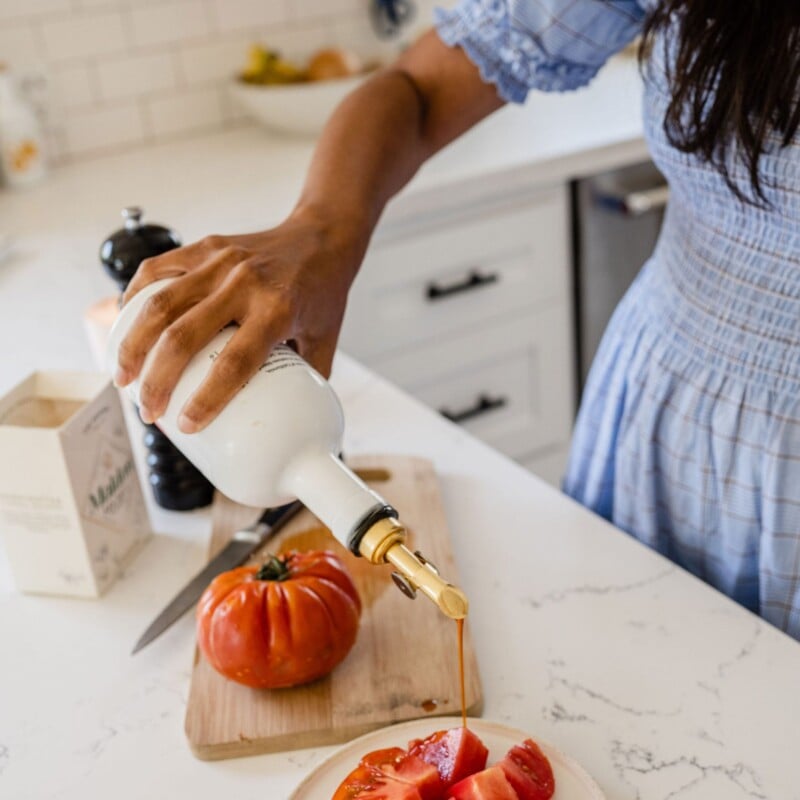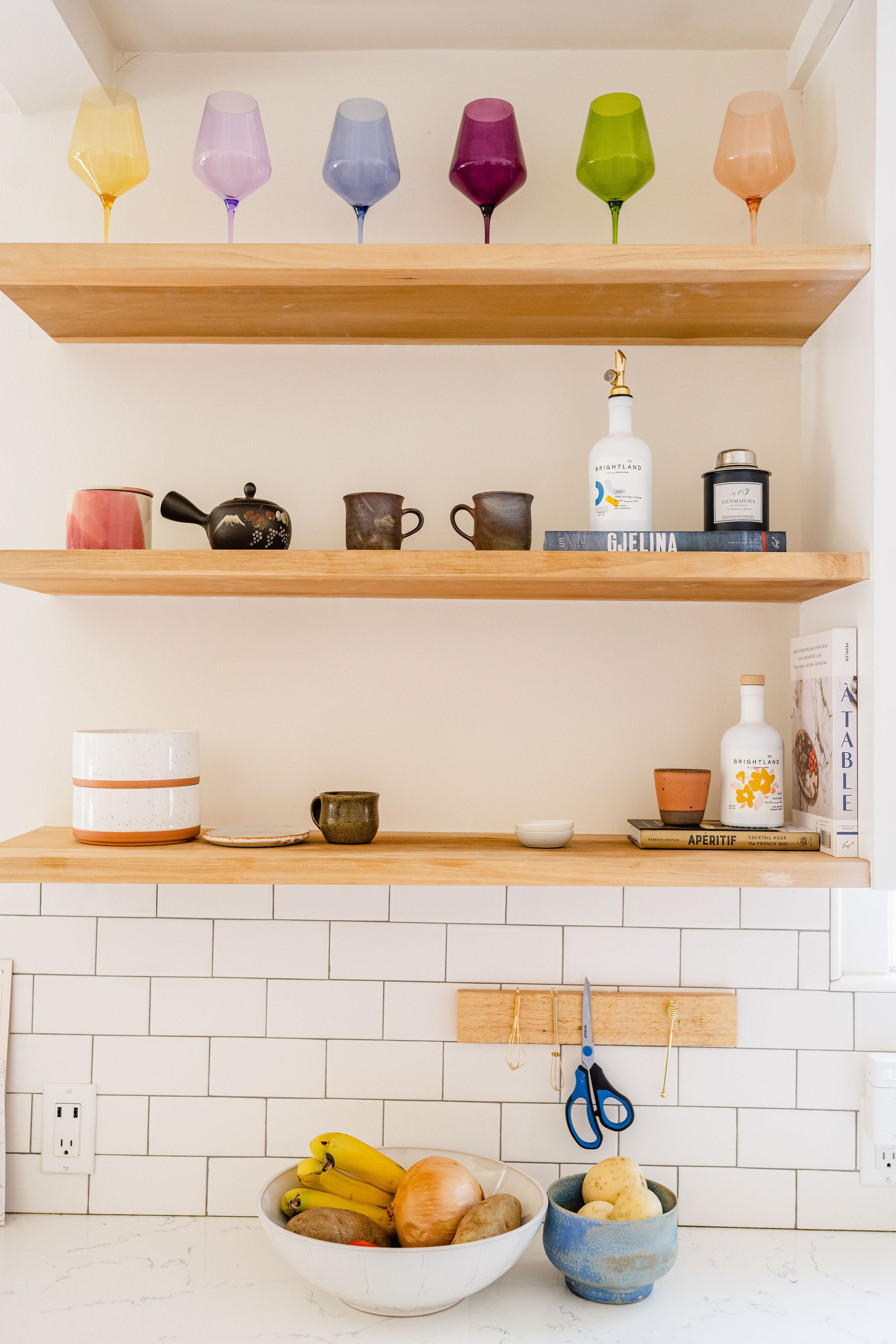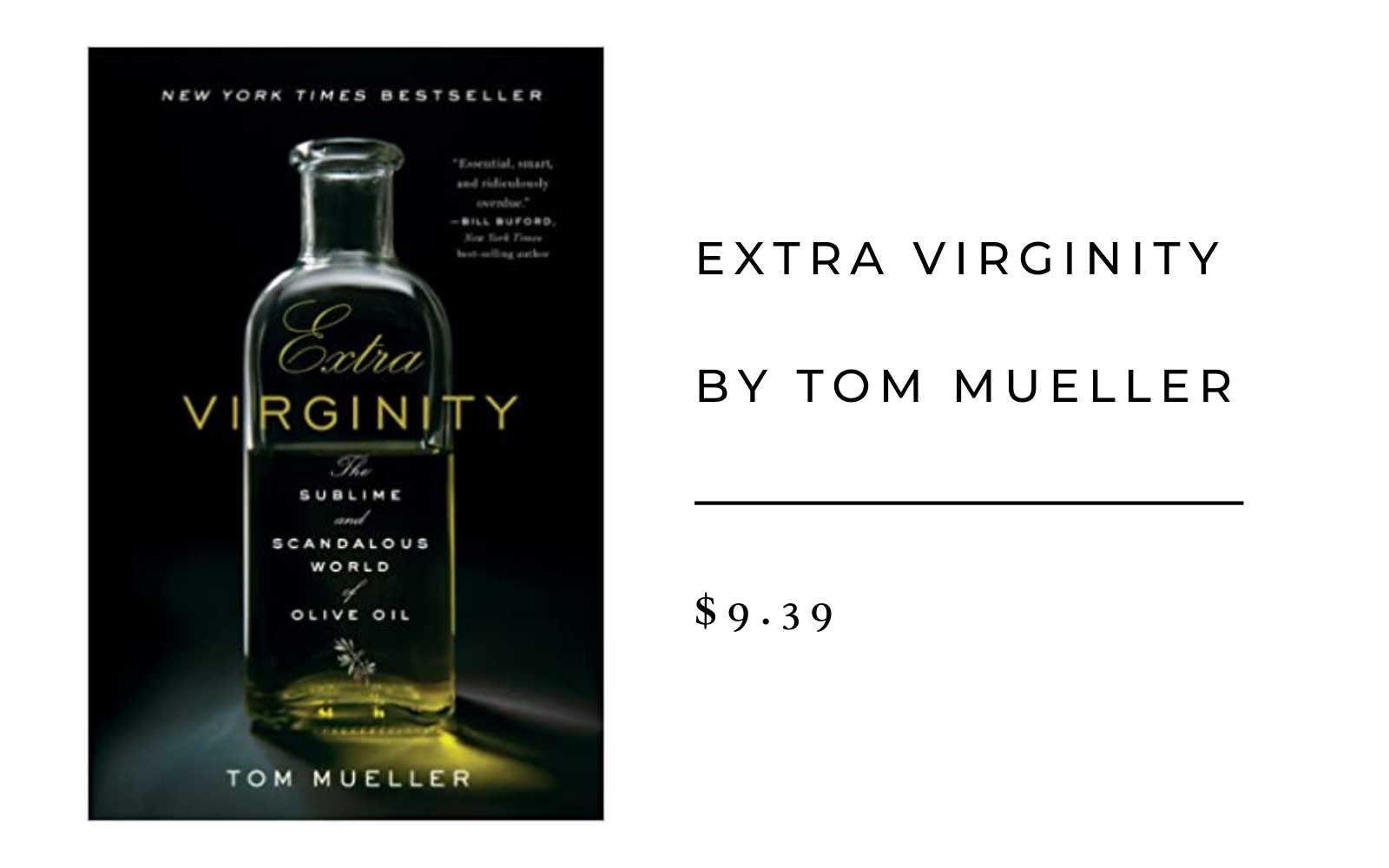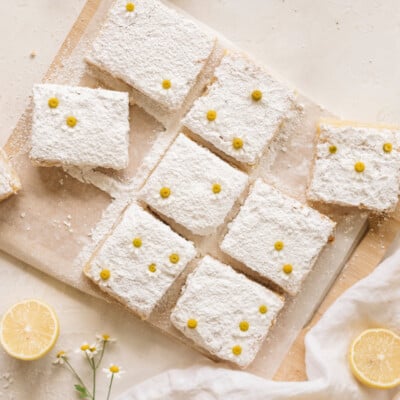Almost every recipe I make, from cakes to pizza, calls for at least a small amount of extra virgin olive oil. And to be honest, I never thought twice about the ingredient until I learned that olive oil fraud is real. Did you know that 70% of olive oil is actually fake? That’s more than two-thirds of olive oils on the shelves at your local supermarket. Since legitimate olive oil is expensive to produce, there are many diluted and counterfeit products that claim to be extra virgin olive oil but can actually be harmful to our bodies.
The best olive oil brand has numerous health benefits, including anti-inflammatory properties and disease-fighting agents, that you just won’t get from inauthentic olive oils. But how can you tell a real olive oil from a fake one?
That’s why we asked Aishwarya Iyer of Brightland—a modern olive oil company that champions authenticity in the olive oil industry—to finally set the record straight. Read on to learn just how corrupt the olive oil industry can be, why buying “real” olive oil is important, and how to identify the fake stuff.

I was shocked to learn that 70% of olive oil is fake. Can you give us some background on when you discovered this and how?
I lived in New York for many years in my 20s and had a spreadsheet of 600+ restaurants that I tracked obsessively. Needless to say, I didn’t cook much. I started cooking after getting into a relationship and we both started getting stomach aches. We eliminated most of the suspects from our diet (cheese, bread, etc), and it turned out that the olive oil was the culprit.
I did some research and was shocked to learn that most of the olive oil that Americans consume is rotten, rancid, or adulterated.
The UC Davis has an Olive Center, so I took courses there to really understand from a molecular and kind of sensory level how to think about and evaluate olive oil.
Take us back to the beginning—what was the lightbulb moment for your business/career and what inspired you to pursue creating Brightland?
When I learned that olive oil was the culprit causing my stomach aches, I realized a lot of the olive oil Americans consume is adulterated and there’s fraud within the industry. That led me to think about the category as a whole and how we really don’t know what we’re consuming. Plus, people feel like they don’t have an olive oil brand they’re super excited about—that’s how I got to that, Maybe there’s something here… moment.
I discovered that in 2015 but took a step back. I didn’t want to do anything inspired by disruption, like, I found this category that’s ripe to attack and I’m going to after it. I wanted it to mean something and be personal to me. I didn’t know if I was the right person to go on this journey and build it, so I went on living life.
A year later I learned that my ancestors in South India owned land and were salt farmers in the 1800s. Learning that I had this connection with the land and food in such a deep-rooted way was what I needed to hear to bridge where I came from and where I could go. That and some coaching about what it means to have an inner critic set me on the journey. I spent 2017 working on the company and we launched in 2018.
Can you tell us a little bit about the history of fraud in the olive oil industry? What are some of the shady practices that take place today?
Adulterated olive oils can contain a blend of inferior quality vegetable oils like soybean oil, sunflower oil, palm oil, or canola oil. Olive oil can go bad during a variety of commercial production processes. Olive oil becomes moldy when the olives have been crushed with dirt and mud. Old or rancid olive oils (often characterized by a wax crayon-like taste) are the result of inadequate storage and exposure to damaging light, heat, or air. A grubby or dirty-tasting olive oil is likely contaminated by larvae. When olive flies lay eggs in developing olives, the larvae feed on the pulp—and end up getting processed into the oil.
How can you spot rancid or inferior oils?
People think olive oil tastes like butter or has no taste when in fact it’s incredibly rich with depth, nuance, and flavor, similar to wine! Taste your olive oil straight: pour some in a spoon and really take a minute to think about the flavors and taste. If it tastes like absolutely nothing or is plastic-y, it’s most likely rancid. If it tastes fresh, green, and has a peppery finish at the back of your throat, it’s likely the real deal (extra virgin olive oil).
The best way is to purchase from a producer or importer that you know operates with integrity and transparency. If that is not possible then these are the rules I would follow:
- Look for a dark bottle. Olive oil does not like light because it deteriorates the oil.
- Check for a harvest date. A bottle date and harvest date are not the same. The bottle date is when the already made oil was put into the bottle(versus a best-by date). With a harvest date, you have a benchmark of when the olive oil was made, and you can count forward to now to calculate how old it is. You want to pick the newest harvest date: when the olives were picked from the tree and made into oil. If you’re buying extra virgin olive oil from North America, look for the most recent Fall Harvest, with an 18-20 month timing. So for example, if you find EVOO harvested from Nov 2020, and it’s June 2021, that’s GREAT. If it’s still Nov 2019, that is not good. Brightland oils are all current from the November 2020 harvest.
Honestly, taste is KEY to spotting rancid/fake oil but I would also stay away from labels that say “pure” “light” or just “virgin” olive oil as well because “pure” and “light” indicate that the oil was actually processed, and “virgin” rather than “extra virgin” means that the oil’s quality is not as high.
Can you tell us a little bit about your process for making clean olive oil?
Our farm partner is a family-run olive farm in the Central Coast of California, with a certified organic mill on-site. It’s one of the most beautiful places I’ve ever seen. While most commercial olive oil producers do not consistently switch their oil to the most recent harvest, we do this to ensure the best possible quality, freshness, health benefits, and flavor in Brightland olive oils. Our olives are carefully hand-picked, processed in the mill within an hour of handpicking, and ninety minutes later, ready to be filtered and stored in temperature-controlled rooms. The olive harvest only happens once a year, and we always switch to the freshest harvest oil as soon as it is available. Our oils are pristinely packaged in UV-protected opaque glass bottles to maintain integrity.
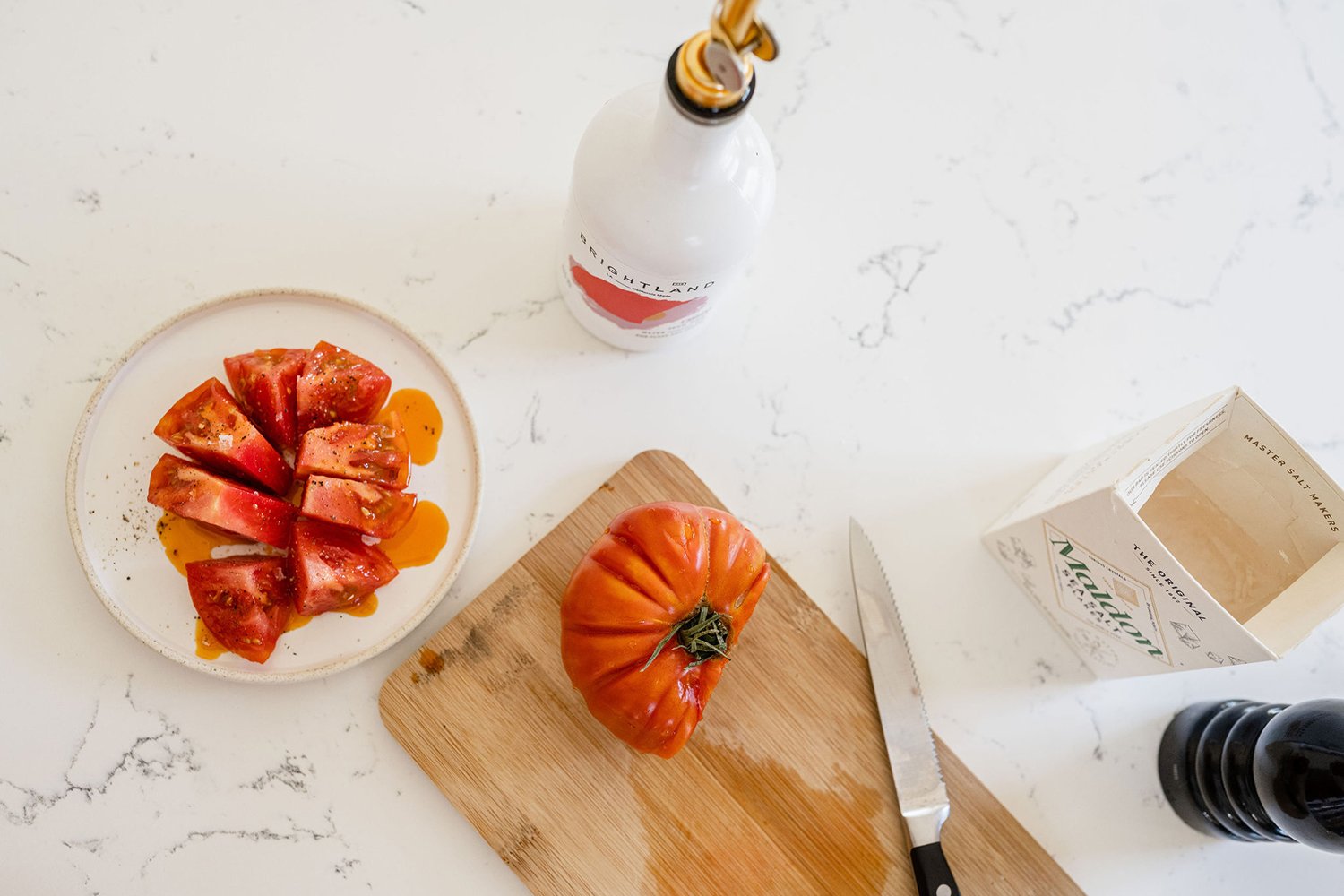
Can you share some of the health benefits of olive oil? Why olive oil vs other oils?
Olive oil is a foundation of wellness; a cornerstone of nourishment for thousands of years and a historic source of wellbeing and ceremony. Athena’s gift of the olive—useful for light, heat, food, medicine, or perfume—was one of the most useful and beloved gifts of the gods.
With a high polyphenol count at the time of harvest, our extra virgin olive oil is loaded with disease-fighting antioxidants and powerful anti-inflammatory properties like oleocanthal.
How are you making a difference and pushing the olive oil industry forward?
Brightland was born out of the desire for better, more honest food production and a deep belief in the land and what it provides. Brightland is out to remake the American olive oil industry by crafting the highest quality, custom-blended extra virgin olive oil that’s audaciously nourishing for your body, heart, and soul. I kept hearing from people within the industry that “no one cares about taste or packaging” and I knew that just was not true, so I was really committed to coming out with a brand that celebrated peppery, bold flavors, and thoughtful, design-centered packaging.
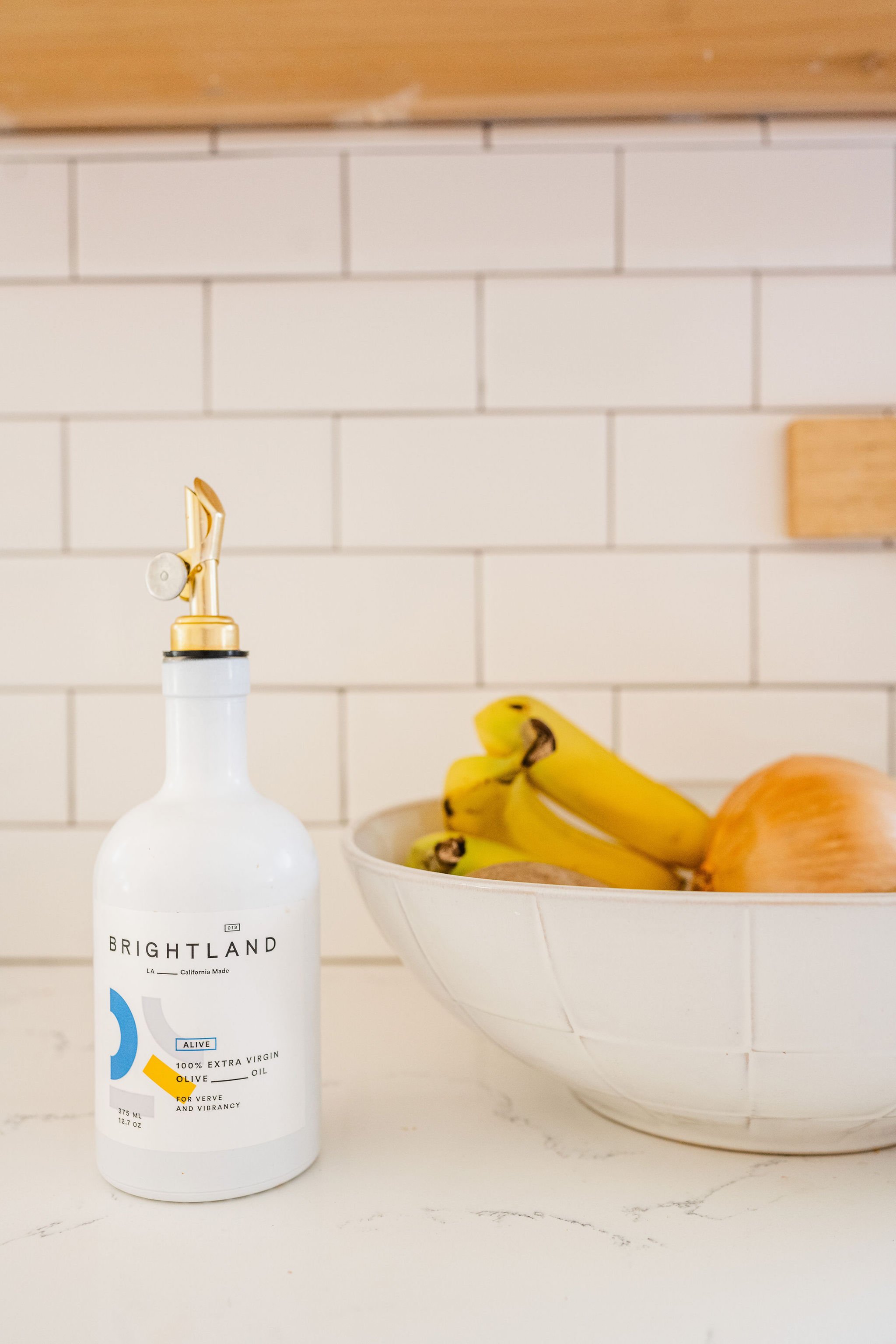
What is one of the biggest misconceptions about working in the olive oil industry?
People think that entrepreneurship is very fun and glamorous, and I think that’s 5% of it. Most of it is spent running around and trying to solve some sort of problem or the other, and people don’t see that it’s all one big mess that you’re trying to wade through and pull gems from. People only see the gems, especially because of Instagram.
What has been the biggest learning curve throughout your career launching Brightland?
All of it! I’m constantly humbled by how little I know on a daily basis, and I am constantly learning from my team, other founders, advisors, etc.
Do your research…
All in all, do your research on the brands you’re buying and make sure you look into their practices, ask questions, and follow Aishwarya’s tips. And, if you want to read more about olive oil fraud, then pick up the New York Times best-selling book, Extra Virginity by Tom Mueller. It will open your eyes to olive oil’s rich past as well as to the “fierce contemporary struggle between oil fraudsters of the globalized food industry and artisan producers whose oil truly deserves the name ‘extra virgin.'”

